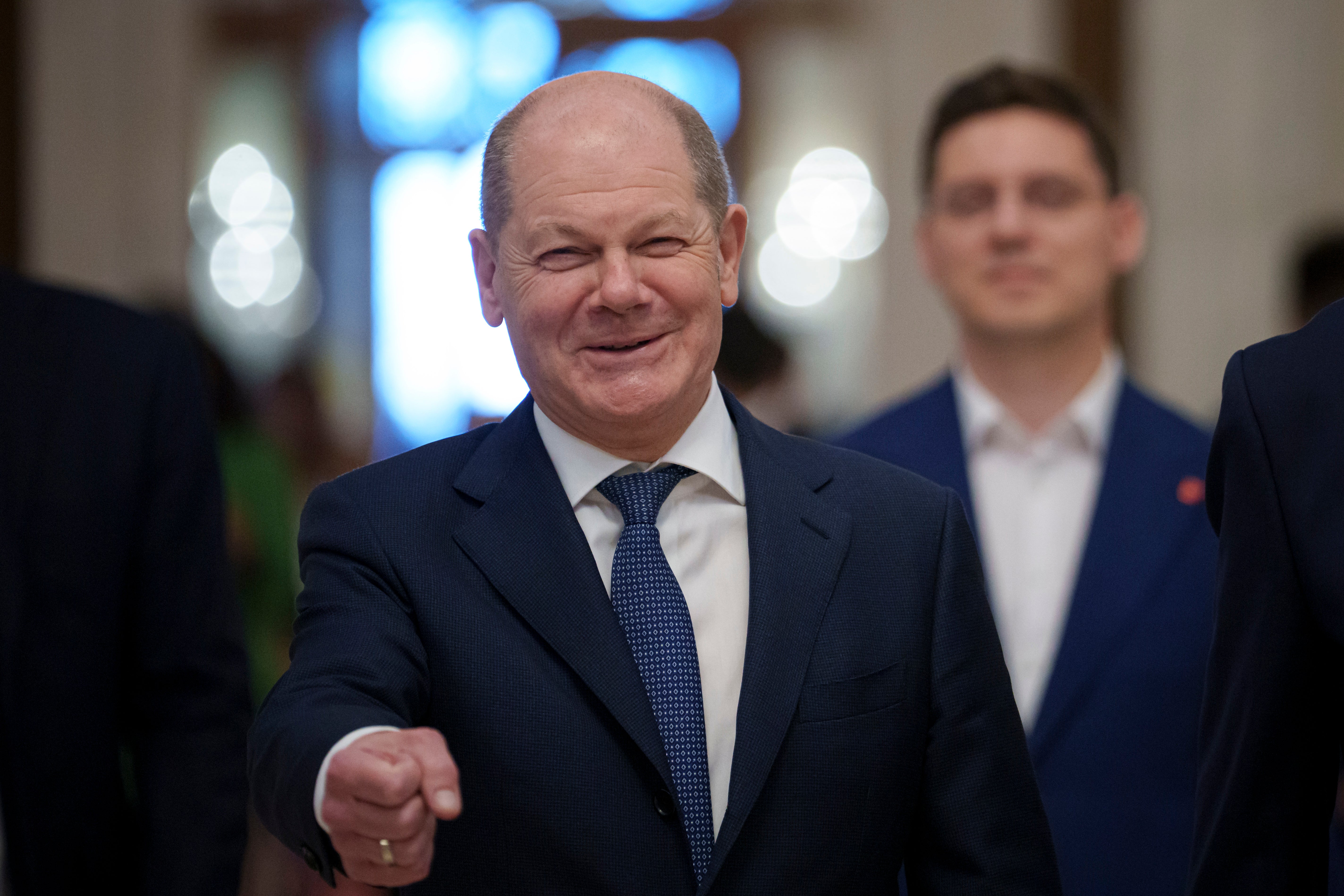Germany's Scholz arrives in China on a visit marked by trade tensions and Ukraine conflict
German Chancellor Olaf Scholz has arrived in China on a visit focused on the increasingly tense economic relationship between the sides and differences over Russia's invasion of Ukraine

German Chancellor Olaf Scholz arrived in China on Sunday on a visit focused on the increasingly tense economic relationship between the nations and differences over Russia’s invasion of Ukraine.
Scholz's first destination was Chongqing, where he and his delegation of ministers and business leaders were to visit a partially German-funded company and other sites in the vast city, which is a production base for China’s auto and other industries.
Scholz is also scheduled to visit the financial hub of Shanghai during his three-day visit, before travelling to the capital, Beijing, to meet with Chinese leader Xi Jinping and Premier Li Qiang.
German companies such as BMW and Volkswagen are highly reliant on the Chinese market, even as Beijing's support for Russia creates frictions with the West.
Germany's economy has benefited from China's demand for investment and manufactured items, from cars to chemicals, but those ties have frayed amid increasing competition from Chinese companies and tightened regulations. Political interference has also been blamed for a sharp drop in foreign investment.
German companies have argued they face unfair market barriers in China and the government has pushed for a policy of “de-risking” to reduce reliance on the Chinese market and suppliers.
Despite that, China remained Germany's top trading partner for the eighth straight year in 2023, with €254.1bn (£217bn) in goods and services exchanged between the sides, slightly more than what Germany traded with the US.
Chinese state broadcaster CCTV showed Scholz descending from his plane in Chongqing and leaving in a motorcade, but did not carry any comments made to the welcoming delegation.
Prior to his arrival, Scholz posted on X, formerly Twitter, that he had discussed the “massive” Russian air attacks on civilian energy infrastructure with Ukrainian president Volodymyr Zelenskyy on Saturday, and declared that Berlin will “stand unbreakably by Ukraine’s side.”
China has refused to criticise Russian aggression. It has maintained trade relations with President Vladimir Putin’s government and aligned its foreign policy with Moscow in opposition to the US-led liberal political order, while touting its authoritarian one-party system as a superior alternative.
Bookmark popover
Removed from bookmarks